Story by V. Michelle Bernard
Sharpening The Focus
It’s been two years since the death of Freddie Gray sparked civil unrest in Baltimore. Maurice Taylor, senior pastor of Allegheny East Conference’s (AEC) Berea Temple, and director of its Baltimore Ministerium, says since Gray’s death, he’s noticed more of a desire to address the needs of the community. “Before we were focused more on internal events,” he says. “Now we’re focused more on external.”
Following the looting that destroyed businesses near his church, AEC and its Baltimore churches, along with the Chesapeake Conference, Columbia Union Conference and North American Division Adventist Community Services, sent funds and volunteers to provide toiletries, diapers and other necessities to economically depressed residents who were left without stores.
Berea members continued providing these personal needs and praying with community members, slowly building trust. After nurturing this relationship and researching local needs, Kecia Hitch, community service director at Berea, proposed offering computer literacy classes, a tool that would provide participants with resources and knowledge to find better jobs and information.
Berea has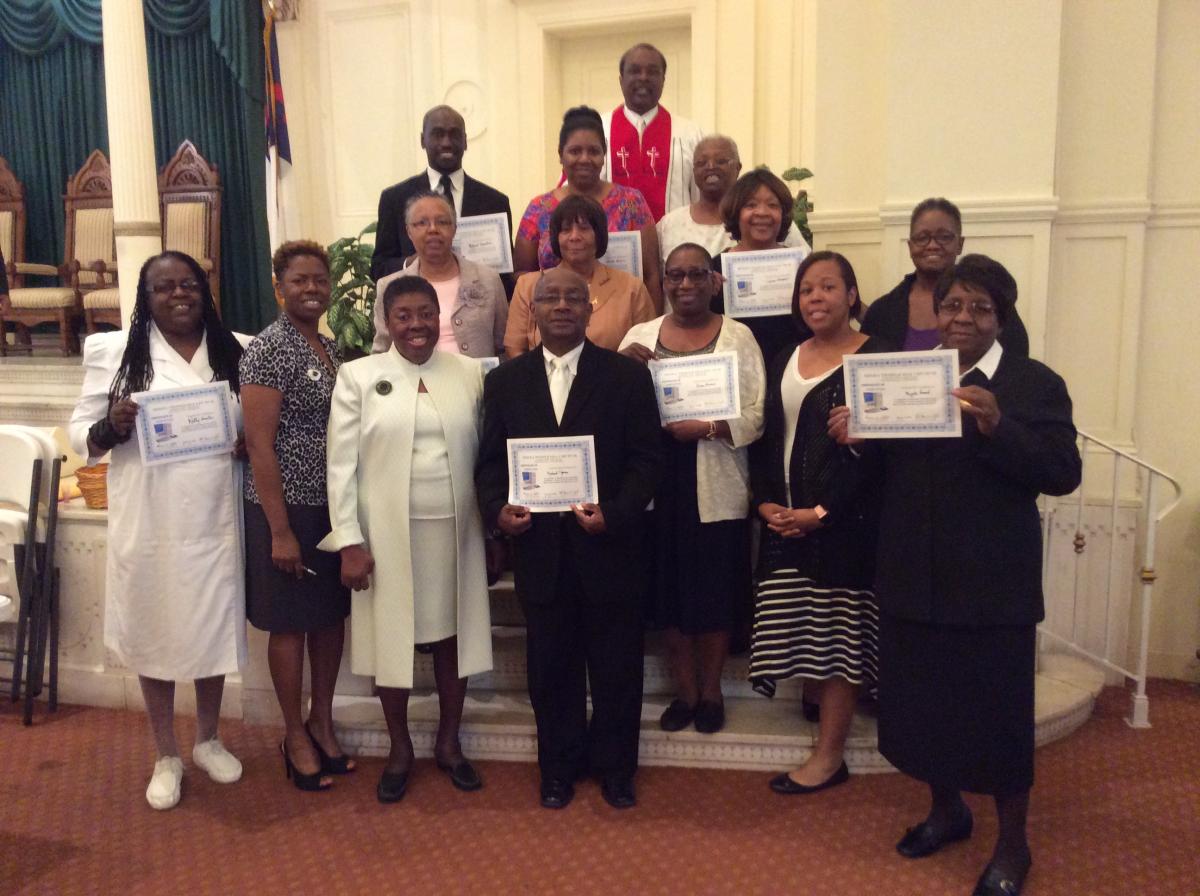 since held two, seven-week classes, with 23 graduates who received a computer upon completion of the course. Hitch reports that before the class, many of the participants didn’t have the basic skills and knowledge to operate a computer, but now show confidence and feel empowered. She says one senior citizen struggled to use a computer at the start of the class, but one day proudly shared internet research with her classmates, motivating others not to give up. “It was so encouraging to hear her,” says Hitch, who notes that the neighborhood at large has taken an active part in improving their community.
since held two, seven-week classes, with 23 graduates who received a computer upon completion of the course. Hitch reports that before the class, many of the participants didn’t have the basic skills and knowledge to operate a computer, but now show confidence and feel empowered. She says one senior citizen struggled to use a computer at the start of the class, but one day proudly shared internet research with her classmates, motivating others not to give up. “It was so encouraging to hear her,” says Hitch, who notes that the neighborhood at large has taken an active part in improving their community.
Making Long-term Impact
Members of the Miracle City church, also in Baltimore, always had a heart for their surrounding community, says Pastor David Franklin. “However, the circumstances surrounding the death of Freddie Gray were a seminal moment for us as we made the choice to restart our engines and make a commitment to having a long-term impact in our community.”
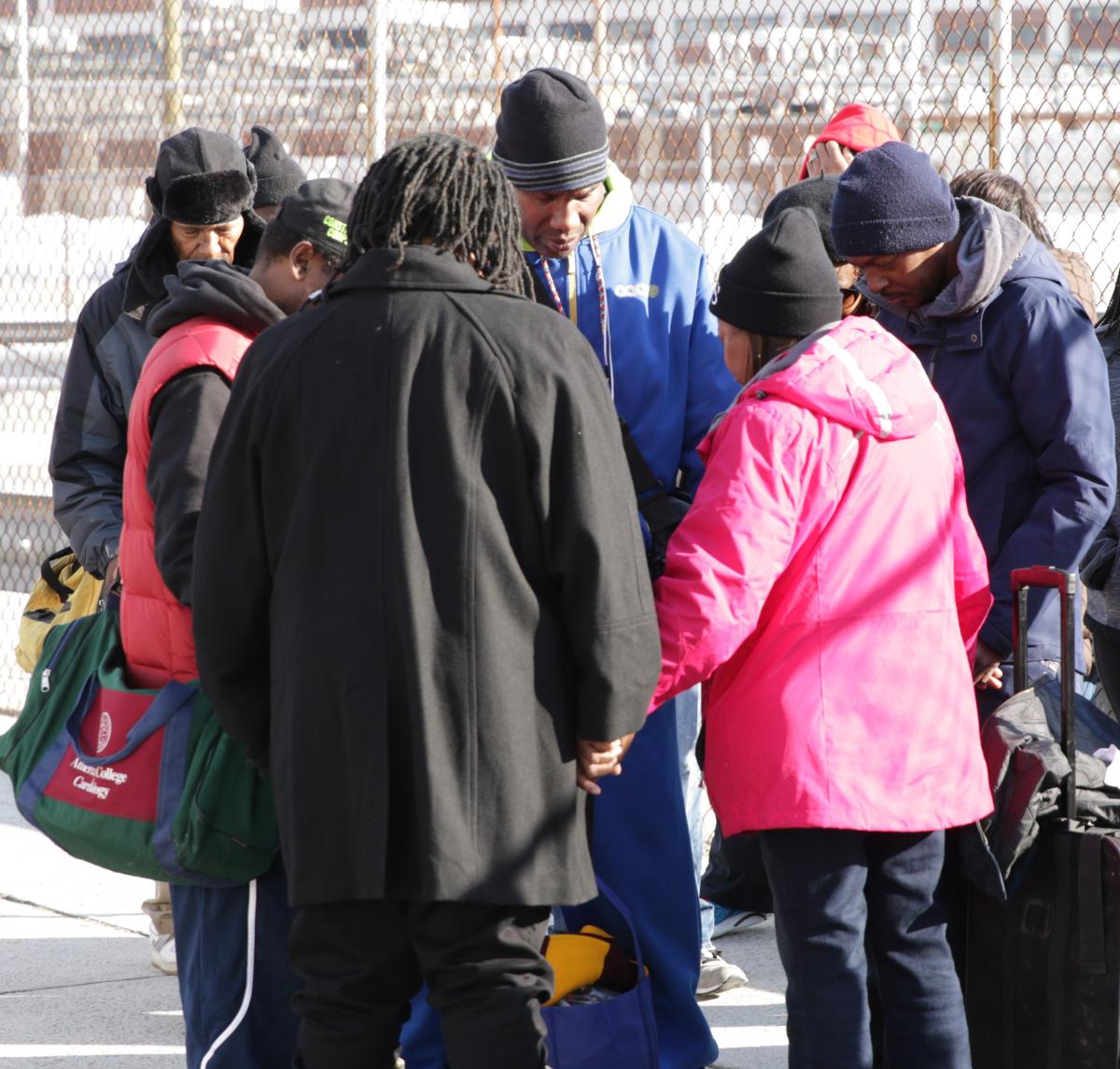 In January 2016, with the goal of helping 100,000 people, Miracle City members launched Serve the City. Members and volunteers helped strangers do laundry, distributed fresh produce and partnered with several nonprofit organizations, among other projects. After just eight months, 2,283 volunteers “touched” 127,569 people in 6,215 hours of service.
In January 2016, with the goal of helping 100,000 people, Miracle City members launched Serve the City. Members and volunteers helped strangers do laundry, distributed fresh produce and partnered with several nonprofit organizations, among other projects. After just eight months, 2,283 volunteers “touched” 127,569 people in 6,215 hours of service.
Although they reached their goal, the campaign hasn’t ended, says Franklin. “We believe that long-term community impact requires consistent, holistic engagement.”
One way they are continuing to touch lives is through the STREAM (Science, Technology, Reading, Engineering And Math) Tutoring Program at a nearby public school, where four days a week, the church partners with administrators to offer an afterschool program for sixth- to eighth-graders.
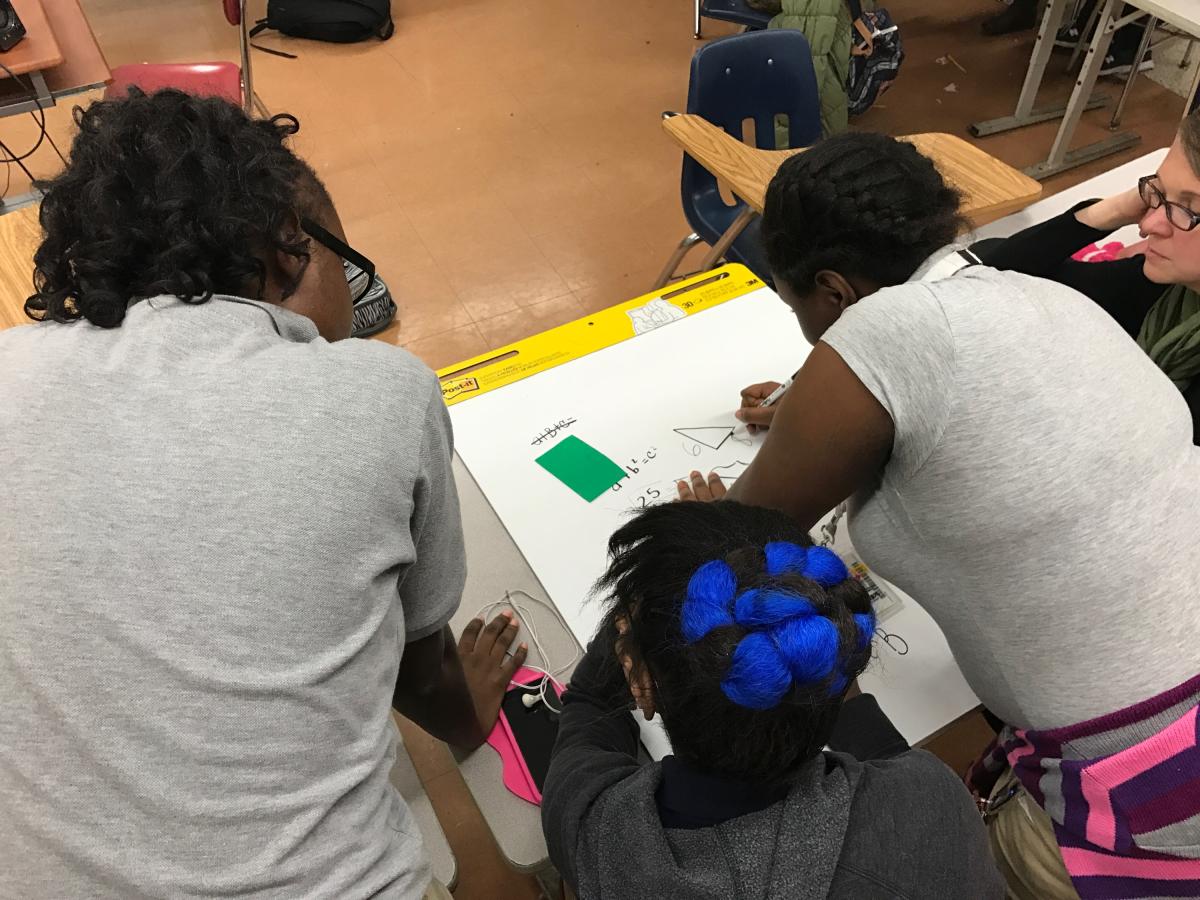 In addition to covering STREAM, literature and social justice topics, volunteers provide meals, and instructors teach the students life skills such as money management. They also aim to encourage students to consider higher education and careers in the science, technology, engineering and math fields. “We have instructors who look like them, are successful and do things that contribute to society. … Everyday we try to show them that success is attainable,” says Sherma Badal, director of the STREAM program. “There is definitely now a heightened interest in the sciences.”
In addition to covering STREAM, literature and social justice topics, volunteers provide meals, and instructors teach the students life skills such as money management. They also aim to encourage students to consider higher education and careers in the science, technology, engineering and math fields. “We have instructors who look like them, are successful and do things that contribute to society. … Everyday we try to show them that success is attainable,” says Sherma Badal, director of the STREAM program. “There is definitely now a heightened interest in the sciences.”
Tutors like Verna Maximin, who attends Miracle City, find engaging ways to inspire the students. Maximin recently used Starburst candies in an illustration to prove the pythagorean theorem. “I wish I could have captured the light on her face, says Maximin, reflecting on one student. “It was the first time I covered a topic that she got. … She was genuinely surprised at herself, to know she could accomplish the goal.”
Filling the Gap
During the unrest, Edmondson Heights pastor Reginald Anderson-Exum was among the clergy marching in the Baltimore streets, calling for peace. Afterward his church took another bold step. “We eliminated every program and church department that did not directly serve the community,” he says.
In Edmondson Village, where the church in located, recreation centers and area schools offer meals and programming during the week, but not on weekends. Exum says many families depend on city services for meals as well. No school means no breakfast, no recreation center means no dinner.
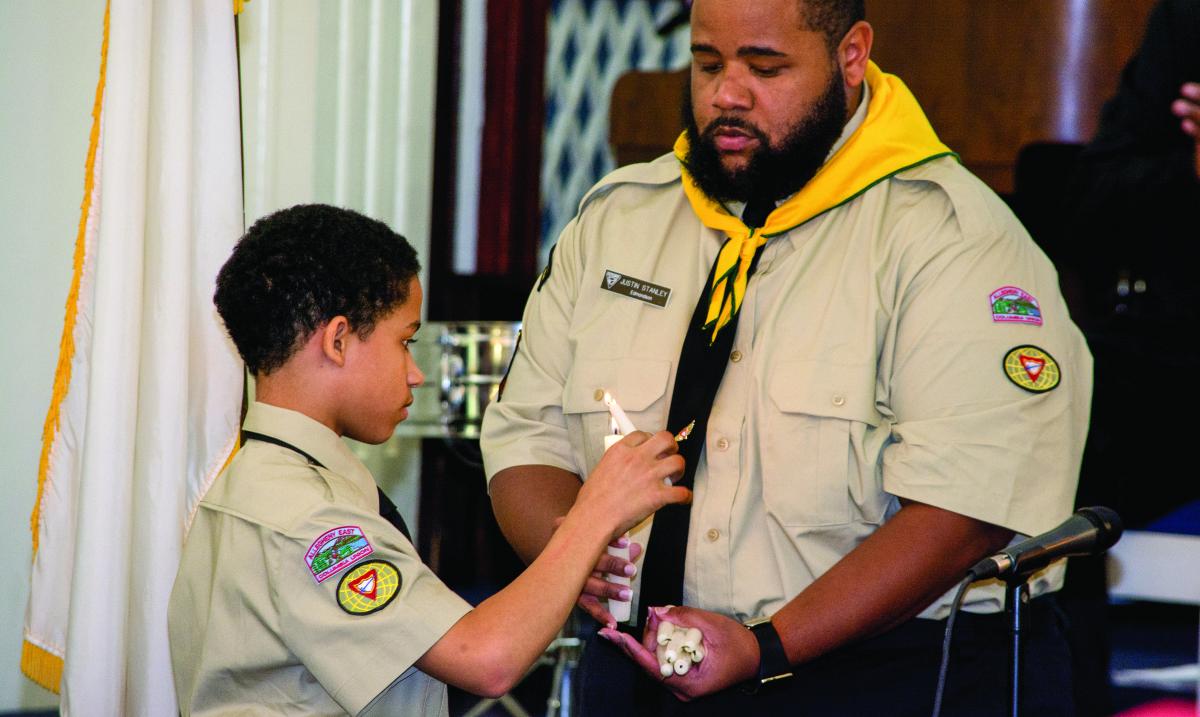 To fill this gap, leaders used their Pathfinder and Adventurer programs to offer food, teach problem solving, teamwork, leadership building, hard work, community respect and city pride. “We have seen children use these skills to increase productivity in school and develop household respect,” reports Exum, a Baltimore native.
To fill this gap, leaders used their Pathfinder and Adventurer programs to offer food, teach problem solving, teamwork, leadership building, hard work, community respect and city pride. “We have seen children use these skills to increase productivity in school and develop household respect,” reports Exum, a Baltimore native.
Sherry Bradford’s grandchildren, Judah (pictured with Justin Stanley), Rasza and Fire Goodwin, are among the children impacted by the program. Bradford, a retired school psychologist, says her grandchildren come from a troubled background. She says the support they’ve received from being in Pathfinders and Adventurers for the last year is immeasurable. “I realize they are at-risk kids,” she says. “But, I see their risk level going down. I see more positive things in their future.”
Treating the Whole Person
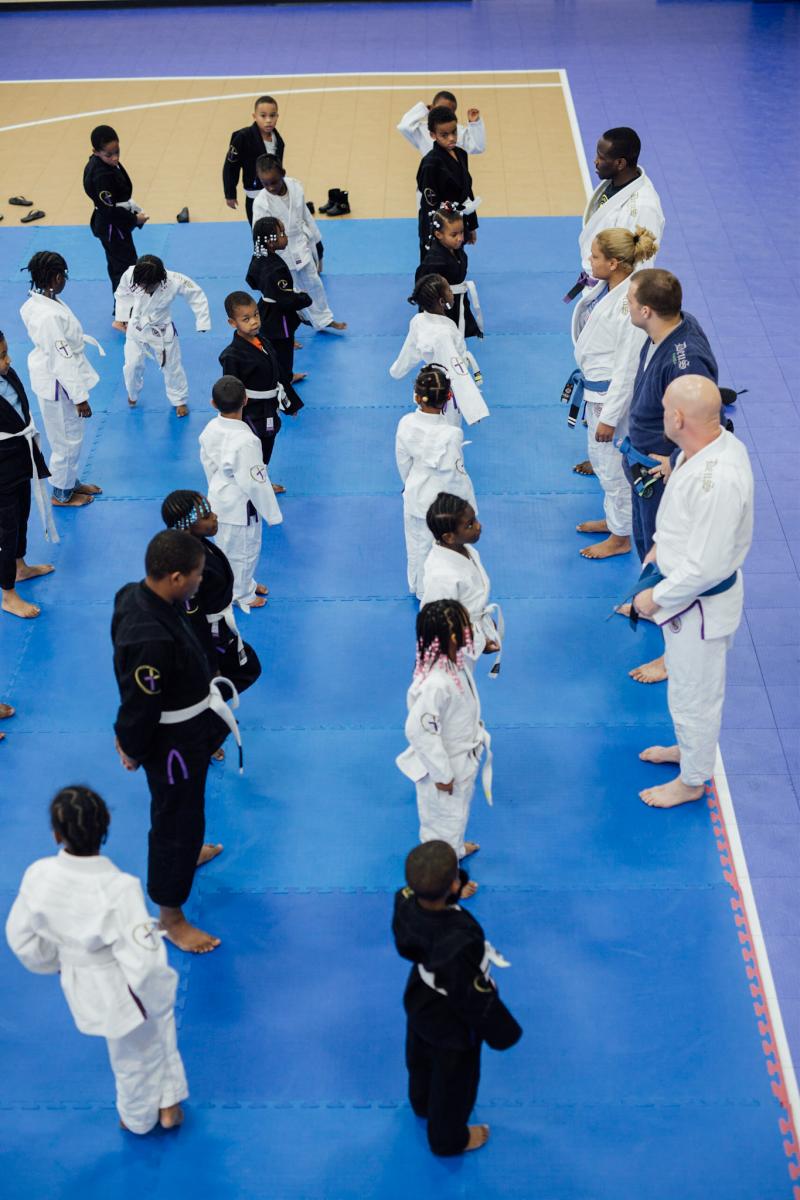 Recreation church is in one of the most violent, drug-riddled, homeless areas of Baltimore, zip code 21215, reports Pastor Vincent Dehm. He says a majority of residents live below the poverty line.
Recreation church is in one of the most violent, drug-riddled, homeless areas of Baltimore, zip code 21215, reports Pastor Vincent Dehm. He says a majority of residents live below the poverty line.
“So many people talk about guns, violence and drugs taking a lot of lives in inner-city Baltimore,” says Dehm. “But what we realized is that diabetes, high blood pressure and heart disease kill more people combined. … We want to help people live healthy lifestyles.”
With a goal of eventually opening a free, full-service health center, Dehm started a children’s Brazilian jiu-jitsu program at Baltimore Junior Academy, the church’s home.
Besides the health benefits, jiu-jitsu teaches life skills. “[It] trains you how to operate in stressful situations,” says Dehm.
Before enrolling her 5-year-old daughter Shiloh in the jiu-jitsu program, Sharon McCullough says she took Shiloh to the doctor, requesting a prescription for medicine to treat her ADHD. The doctor said no and told her to involve Shiloh in a physical activity outside of school.
 McCullough reports that Shiloh (pictured left) has become more attentive. “It helps out in class. I see her focusing more and paying attention. … It helps her release some of that extra energy.”
McCullough reports that Shiloh (pictured left) has become more attentive. “It helps out in class. I see her focusing more and paying attention. … It helps her release some of that extra energy.”
The class is open to church and community children. They also recently started offering Brazilian jiu-jitsu and Zumba classes for adults.
“We are proof that you don’t have to have 500 members to have an impact,” says Dehm of his 40-member church. “You don’t have to have $100,000 in your bank account to make a difference.”
To fund the classes, Dehm recruited local jiu-jitsu instructors to donate their time and partnered with DeuS Fight, a Christian martial arts supply company, who sponsored the uniforms for the students. Church leaders also work with other local organizations and neighborhood volunteers to distribute food in the
community, serving some 7,324 people in 2015.
Unexpected Touches of God
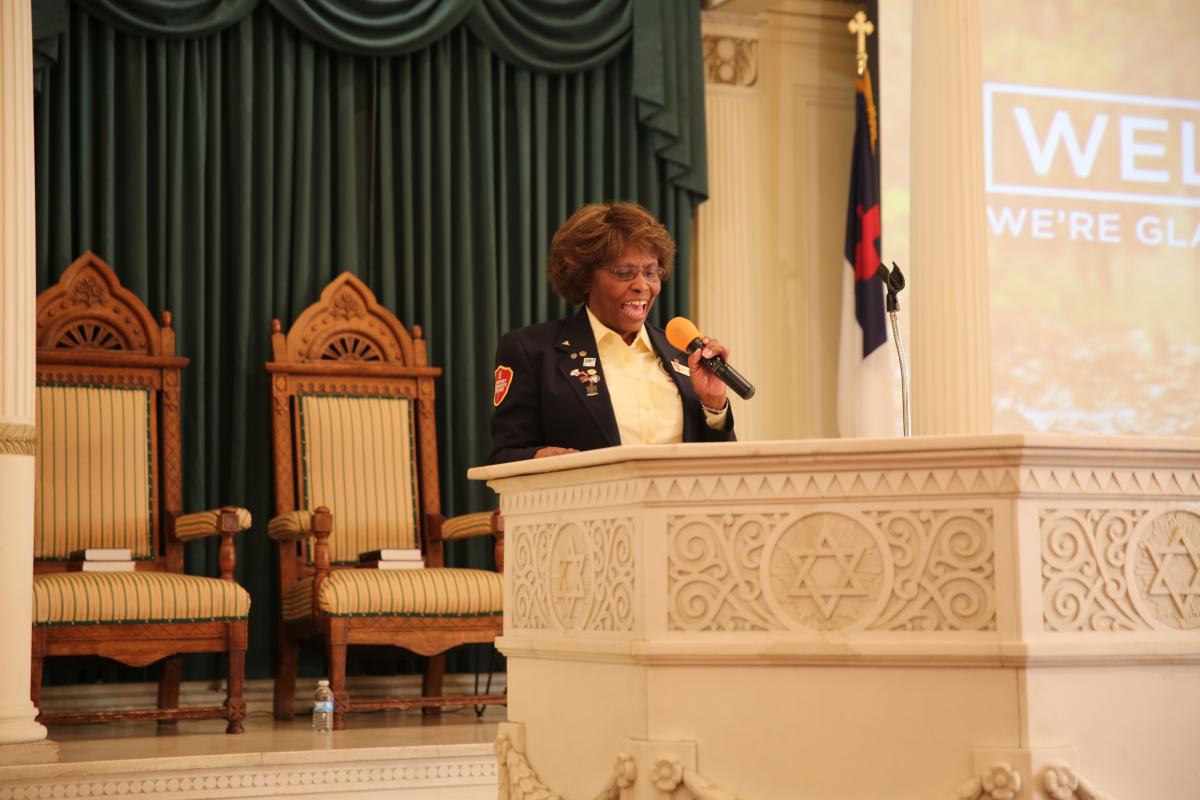 Minnie McNeil (pictured, right), director of Adventist Community Services for AEC and the Columbia Union Conference coordinator, says she’s pleased to see an increase in membership involvement in the last two years. It isn’t “an attitude of I have to do this—but I’m seeing more of an attitude of joy in finding creative ways to share Christ, and that is exciting to me,” she says.
Minnie McNeil (pictured, right), director of Adventist Community Services for AEC and the Columbia Union Conference coordinator, says she’s pleased to see an increase in membership involvement in the last two years. It isn’t “an attitude of I have to do this—but I’m seeing more of an attitude of joy in finding creative ways to share Christ, and that is exciting to me,” she says.
“We’re now developing a presence that we may not have had before [Gray’s death],” says McNeil. “We are connecting with community members and building relationships with them ‘up close and personal.’ [In this day and age,] you don’t expect someone to give you quarters when you’re doing laundry; offer free gym classes, a mentoring youth club [Pathfinders] and computer classes; or befriend prostitutes. In these times, you don’t expect a tangible touch from God in unlikely places.”
That’s changing.
Edmondson Heights photo by Joseph Kane, Recreation photos by Brian Tagalog.

